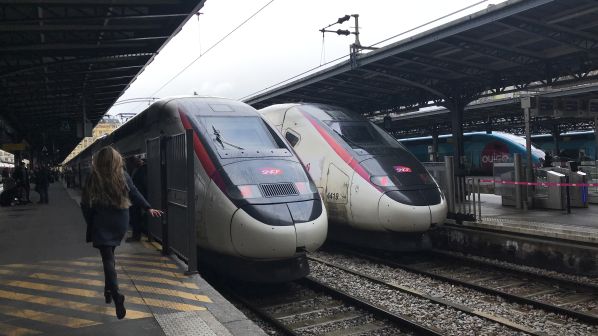SNCF will operate a total of 40 TGV InOui services per day, down from 90 at present, or 7% of normal traffic. Intercity trains will also operate at only 7% of their usual frequency.
SNCF says the reduction in traffic makes it possible to continue to provide essential services for people with legitimate reasons to travel while combating the spread of the virus.
Capacity will be limited on the trains that will operate in order to provide sufficient distance between passengers. Police are controlling the entrance to all stations with passengers holding tickets only allowed to enter stations.
SNCF will refund cancelled tickets at no cost.
Hospital train
In addition, SNCF operated a TGV Duplex train carrying around 30 patients with Covid-19 to other hospitals on March 26, the first such service in Europe, according to French minister of health, Mr Olivier Véran.
Patients were transferred from hospitals in Strasbourg and Mulhouse via ambulance to the train, which left Paris Est station at around 11.00, arriving in Angers at 15.30. The service continued to Nantes where it was due to arrive at 18.30, according to SNCF. The train is intended to relieve pressure on hospitals by transferring patients to intensive care units where there is currently spare capacity.
The train also carried medical equipment and nursing staff, and was fitted with ventilators for use by the patients. Train crew were kept separate from the medical coaches with medical staff here wearing appropriate protective clothing. The train will be completely decontaminated on its return from Nantes.
SNCF will also make overnight trains available for the further transport of Covid-19 patients, according to transport minister, Mr Jean-Baptiste Djebarri.
“Because we are a large public service company, SNCF is mobilising to give the best of itself and respond when we need it, in good times as well as in difficult times,” says Mr Christophe Fanichet, chairman and CEO of SNCF Voyageurs. “SNCF teams once again demonstrate their sense of duty and their ability to work together to allow this train to run. I thank them warmly.”

